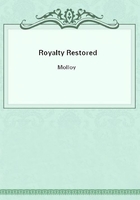
第31章 CHAPTER V.(5)
Spain had two infantas, but one was wedded to the King of France, and the other betrothed to the heir of the royal house of Austria. Germany, of course, had princesses in vast numbers, who awaited disposal; but when they were proposed to King Charles, "he put off the discourse with raillery," as Lord Halifax narrates. "Odd's fish," he would say, shrugging his shoulders and making a grimace, "I could not marry one of them: they are all dull and foggy!"Catherine of Braganza, daughter of Don Juan IV. of Portugal, was unwedded, and to her Charles ultimately addressed himself.
Alliance with her commended itself to the nation from the fact that the late king, before the troubled times began, had entered into a negotiation with Portugal concerning the marriage of this same infanta and his present majesty; and such was the esteem in which the memory of Charles I. was now held, that compliance with his desires was regarded as a sacred obligation. The Portuguese ambassador assured the merry monarch that the princess, by reason of her beauty, person, and age, was most suited to him. To convince him of this, he showed his majesty a portrait of the lady, which the king examining, declared "that person could not be unhandsome." The ambassador, who was of a certainty most anxious for this union, then said it was true the princess was a catholic, and would never change her faith; but she was free from "meddling activity;" that she had been reared by a wise mother, and would only look to the freedom of practising her own religion without interfering with that of others. Finally, he added that the princess would have a dowry befitting her high station, of no less a sum than five hundred thousand pounds sterling in ready money.
Moreover, by way of addition to this already handsome portion, the Queen of Portugal was ready to assign over and annex to the English crown, the Island of Bombay, in the East Indies, and Tangier on the African coast--a place of strength and importance, which would be of great benefit and security to British commerce.
Nor was this all. Portugal was likewise willing to grant England free trade in Brazil and the East Indies, a privilege heretofore denied all other countries. This was indeed a dower which none of the "dull and foggy" German princesses could bring the crown.
The prospect of obtaining so much ready money especially commended the alliance to the extravagant taste of his majesty, who had this year complained to Parliament of his poverty, by reason of which he "was so much grieved to see many of his friends come to him at Whitehall, and to think they were obliged to go somewhere else for a dinner."The merry monarch was therefore well pleased at the prospect of his union, as were likewise the chancellor and four or five "competent considerers of such an affair" whom he consulted.
These worthy counsellors and men of sage repute, who included in their number the Duke of Ormond and Sir Edward Nicholas, Secretary of State, the Earl of Manchester, and the Earl of Southampton, after regretting it was not agreeable to his majesty to select a queen who professed the protestant religion, gave it as their opinion there was no catholic princess in Europe whom he, with so much reason and advantage, could marry as the infanta of Portugal. They, moreover, added that the sum promised as part of her portion, setting aside the places, "was much greater--almost double to what any king had ever received in money by any marriage." The council, therefore, without a dissenting voice, advised him to the marriage.